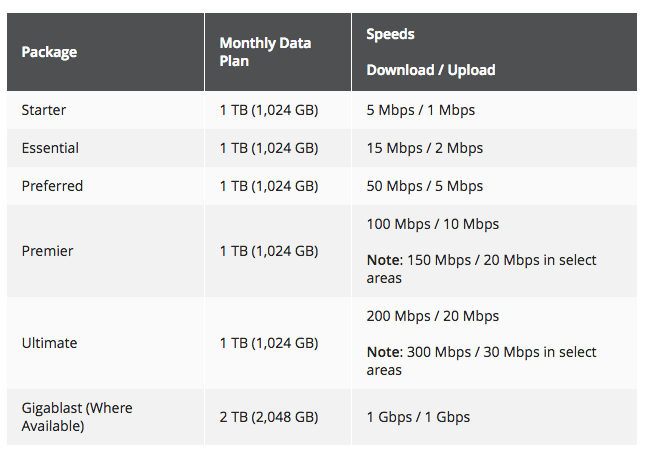Cox Joins The 1 TB Data Cap Party Image courtesy of Mike Mozart
Fast internet is great for doing stuff. Except that for millions of subscribers, there’s a limit on how much stuff you can do before you start having to pay extra. Cox this week joined the small-but-growing club of providers who have decided that 1 terabyte of data is a nice, round number to set as the outer limit of your access.
DSL Reports points out that Cox Communications (no relation to yours truly) has quietly slipped a new update onto its website.
All speed tiers now come with a “data plan” allowance of 1 TB per month, except for gigabit users. Those subscribers get a 2 TB cap, like so:
Calling it a data plan, and specifying up top that “unused data does not carry over into the next month” tries to put users on familiar ground. Not familiar in home broadband or cable, mind; familiar to our mobile phone subscriptions.
In this, Cox is mostly just joining the club. Comcast, which recently dramatically expanded its broadband caps to cover huge swaths of the country, bumped their “data plan” to 1 TB back in June, and AT&T followed suit in July.
Cox, like Comcast before it, claims that a terabyte of data is both sufficient and generous, saying 99% of its customers are already covered perfectly well by their current data plan.
The company does not throttle when you hit the cap but, instead, charges for overages. At least, for some subscribers. Specifically, Cleveland-area customers who go over their cap will have to pay $10 for each 50 GB they use over the limit. Everyone else is still exempt from overage billing for the time being. (Sorry, Ohio. In this, Cleveland does not rock.)
Everyone else is off the hook for extra billing, for the time being, though Cox will still send usage warnings at the 80%, 100%, and 170% thresholds. And it seems very, very likely that overage charges will, at some point, spread outward into the rest of Cox’s footprint.
Want more consumer news? Visit our parent organization, Consumer Reports, for the latest on scams, recalls, and other consumer issues.


